There are so many things in the world that we may admire or even get inspired by, but there’s one main thing we may want to fall in love with before we start noticing the beauty of other things. It’s our own reflection in the mirror. Among all the numerous recipes for conjuring up self-love within ourselves, psychologists advise us to never compare ourselves to others and stop caring about other people’s opinions. Actress and producer Lena Dunham knows a lot about cultivating love for her own body despite all the criticism she faced, and she happily shares her journey with us all.
Lena Dunham doesn’t accept the term “body positivity,” and here’s why.


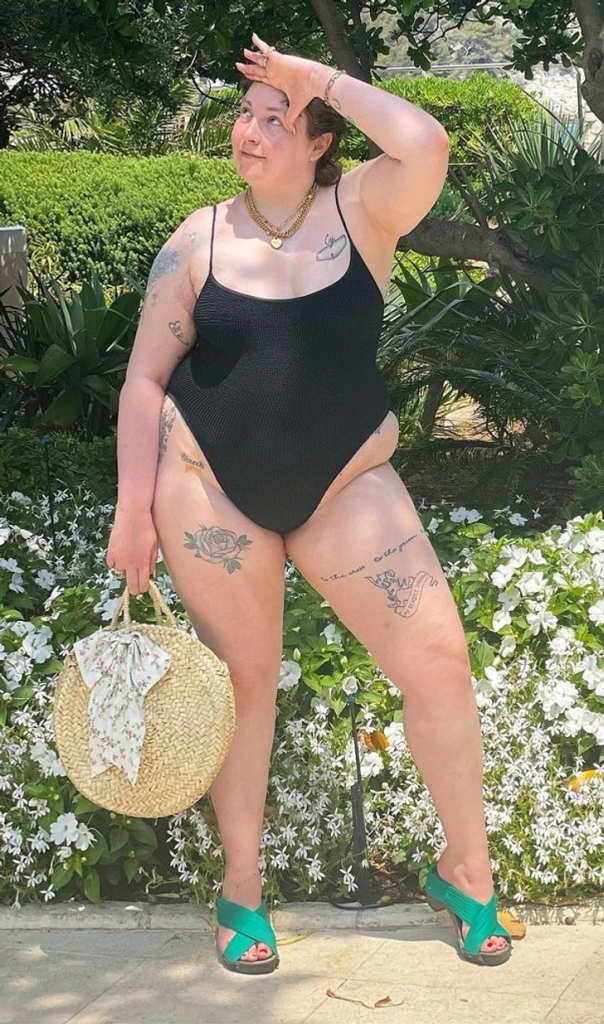
Actress and writer Lena Dunham has recently added another string to her bow and collaborated with the brand 11 Honoré to create a plus-size clothing collection. But the very term “plus size” frustrates Lena, and so is the term “body positivity.” In one of her Instagram posts, she explains that she feels more “body tolerant” than “body positive.”
In her interview, Dunham said, “The thing that’s complicated about the body-positive movement is it can be for the privileged few who have a body that looks the way people want to feel positive. We want curvy bodies that look like Kim Kardashian has been up-sized slightly. We want big beautiful butts and big beautiful breasts and no cellulite and faces that look like you could smack them onto thin women.”
Dunham has a very special relationship with her own body.
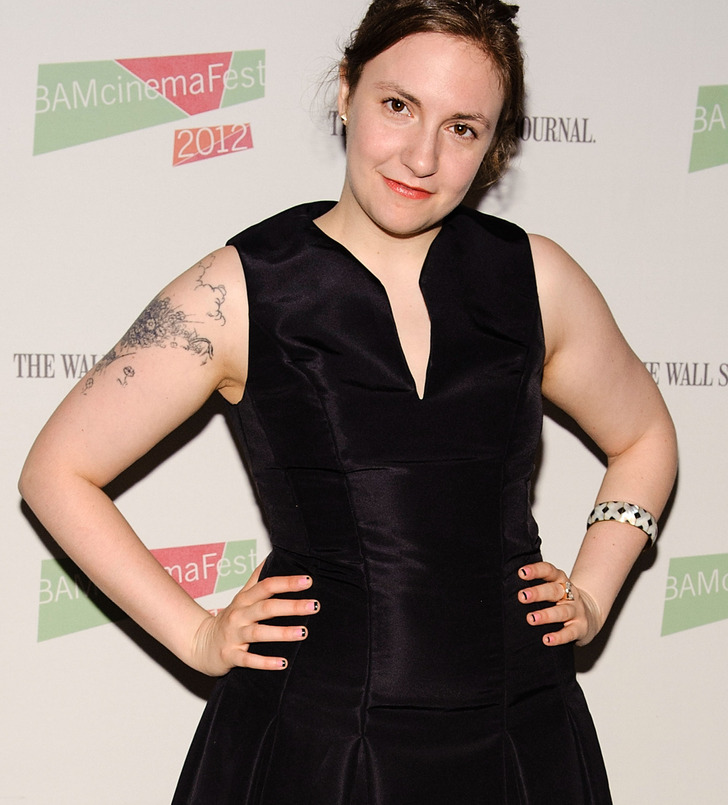


Dunhams path to self-love started with a decade-long journey with endometriosis. Since she started her own fight against it, she has been candidly sharing how it influenced both her emotional health and her relationship with her own body image. In her Instagram post, she emotionally described how she fluctuated between loving her body and the opposite.
She wrote, “Ya know when you’re home alone, and you realize you’d be happier in a hot lil’ onesie than your ketchup and cat food stained pajamas? And it’s not about a boy or a photo shoot or a weight loss before-and-after, it’s just for the feeling of glee you get from dressing your one and only corporeal form in pleasing fabrics, the unique pleasure of admiring the twists and turns of the body that loves the heck out of you even when you don’t love it.”
Dunham is powerfully addressing all people who come to her page with criticism.
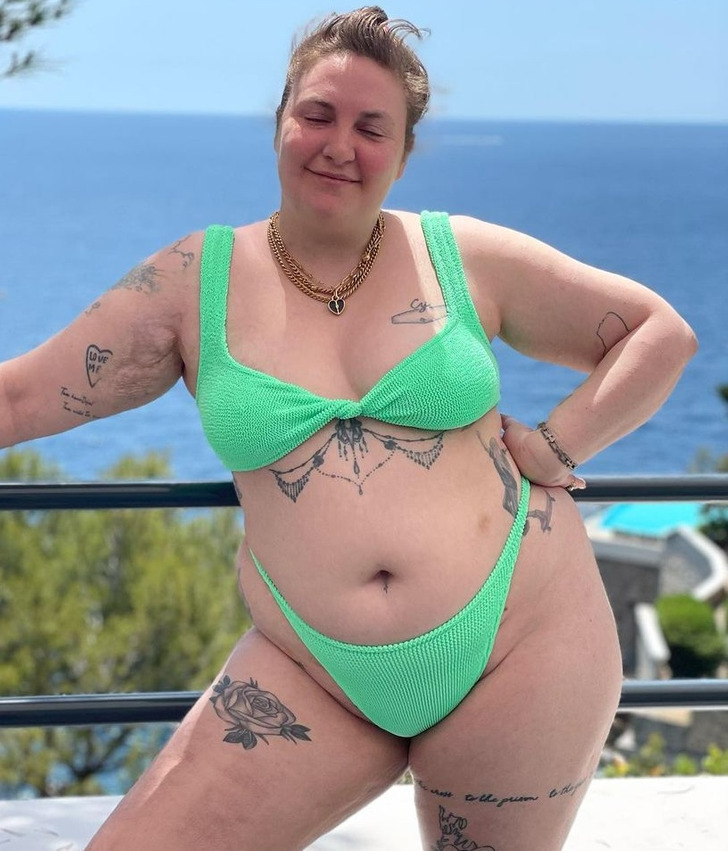


In 2021, Dunham tied the knot with musician Luis Felber. It was such a darling event for her that she wore 3 wedding dresses to marry her love and shared the photos on her Instagram. However, she started getting some “gnarly” comments in her feed from people who commented on her body and appearance. The actress didn’t hesitate for a minute to address them with a powerful message.
She wrote, “One narrative I take issue with, largely because it’s a story I don’t want other women, other people, to get lodged in their heads, is that I should somehow be criticized because my body has changed since I was last on television. […] But lastly, when will we learn to stop equating thinness with health/happiness?”
Dunham’s powerful message can be echoed in the hearts of many.
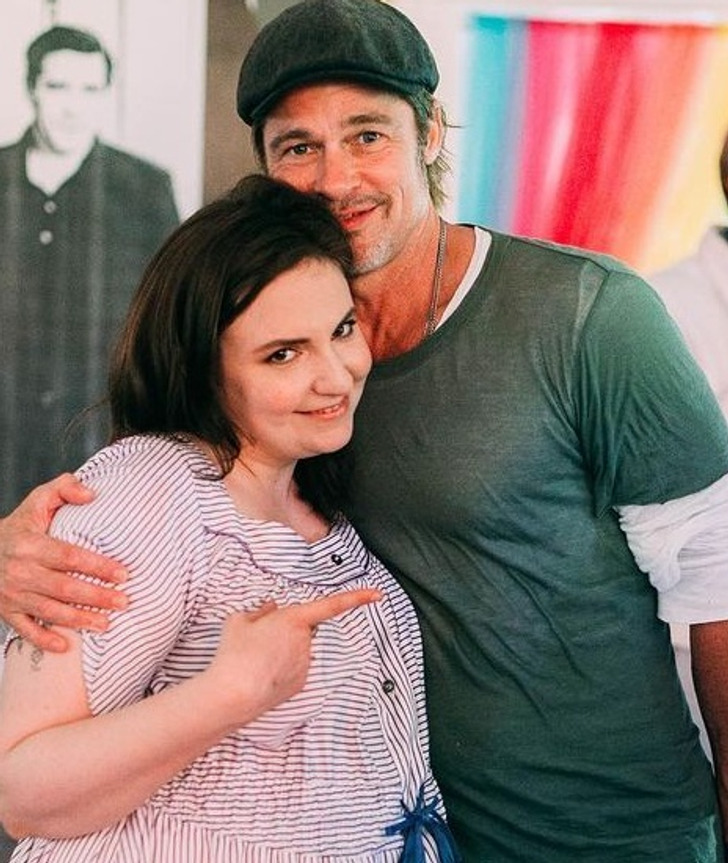
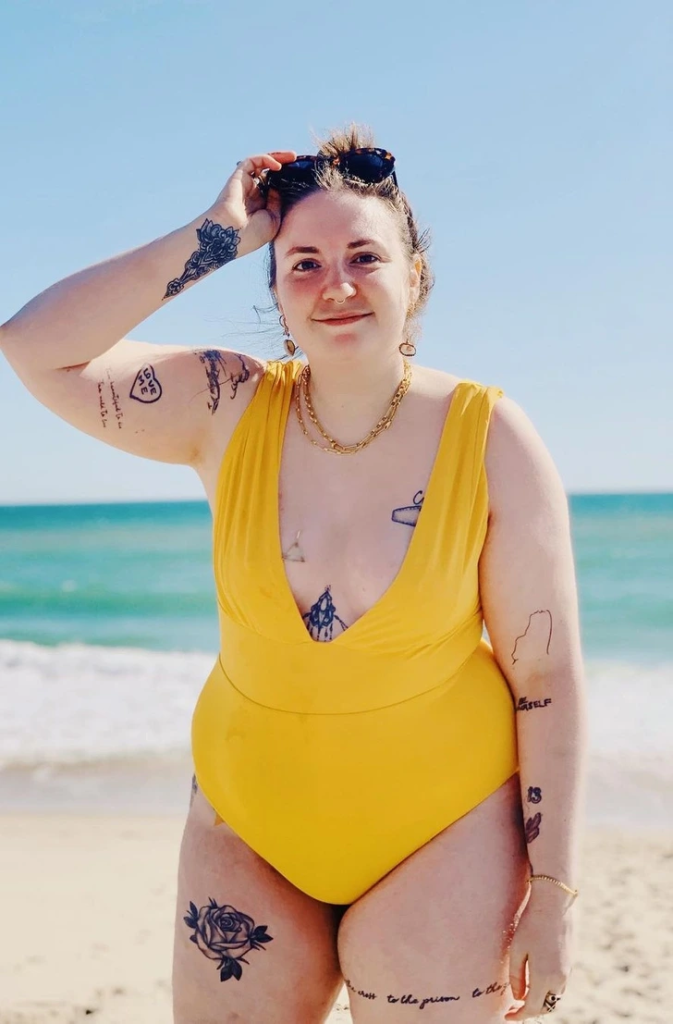
For all people who have ever hesitated about embracing their body image, Dunham has some simple yet wise advice. She says, “Of course weight loss can be the result of positive change in habits, but guess what? So can weight gain. The pics I’m being compared to are from when I was with an undiagnosed illness. In the last 4 years, I’ve begun my life as someone who aspires toward health and not just achievement.
These changes have allowed me to be the kind of sister/friend/daughter that I want to be and yes — meet my husband (who, by the way, doesn’t recognize me in those old photos because he sees how dimmed my light was). I say this for any other person whose appearance has been changed with time, illness, or circumstance — it’s okay to live in your present body without treating it as transitional. I am, and I’m really enjoying it. Love you all.”
Do you find Lena Dunham’s example inspiring? What do you love the most about your appearance?
Preview photo credit Steve Granitz / WireImage / Getty Images, lenadunham / Instagram
Woman turns her home into hospice for old shelter dogs so they don’t die alone

Even the dogs that may not have much time left should have a loving home. Even though younger puppies frequently take precedence over older dogs, older dogs should have a permanent home to live out their days.
However, one woman has dedicated her life to providing these elderly shelter dogs with a loving final home, converting her house into a sanctuary that is currently home to 80 senior animals.
The 44-year-old Valerie Reid of Hermitage, Missouri, was motivated to care for elderly dogs after a life event made her aware of the challenges that animals encounter as they age.
https://www.facebook.com/plugins/post.php?href=https%3A%2F%2Fwww.facebook.com%2Fwhisperingwillowsseniordogsanctuary%2Fposts%2Fpfbid029GinAs2e7Xr9TsEYcMSMuaw9Dt2QC57tBKWhuzuxLaEWCfztdv5S5wzNPwZGQojcl&show_text=true&width=500
As her father battled cancer, SWNS reported that she found it difficult to find a place for her dad’s elderly Doberman. She discovered that no other rescue would take her and that she was already over the city’s pet limit, so she was unable to adopt the dog.
Because of her age, no rescue would take her home, Valerie said, “We looked everywhere for any rescue that would help.”
At last, she managed to find the Doberman a foster home on a farm that took special care of elderly dogs. The dog had a happy ending and lived in peace for an additional year and a half in their care; Valerie found inspiration from the experience that opened her eyes.
She told SWNS, “It got me thinking about what happens to senior dogs who were once beloved pets.” “I became aware of how many dogs there were in need of assistance… It is a genuinely overlooked area in the rescue industry.
Thus, in 2017, Whispering Willows elderly Dog Sanctuary—a non-profit sanctuary for elderly dogs—was established by Valerie and her spouse, Josh. They purchased a 3,000 square foot house near Hermitage, which provided ample space for dozens of canines to pass away peacefully and comfortably.
Dogs older than 12 are accepted. She said to Ozarks First, “Sometimes special needs, sometimes hospice.” “On sometimes, all they come to us for is a place to lay their head and die.”
She clarified that a large number of the dogs had histories of cruelty and neglect, citing the discovery of Peanut, a dog, chained up amid a scorching heat wave.
She said to KY3, “When they come in, they’re very broken-hearted, emotionally or physically.”
Valerie, however, states that her intention is to provide them with a sense of normalcy and trust, as well as a secure permanent residence in which to live out their last days.
“They stay once they arrive. They’re not required to go. Since this is their permanent home, they won’t experience any more stress or loss.
“They know they’re safe when they arrive.”
Over the years, the rescue has expanded significantly; according to SWNS, the hospice currently houses 80 dogs at a time and employs 17 full-time staff members to care for the dogs.
“The sanctuary really grew and expanded beyond my wildest expectations. I adore having so many tiny hearts that reciprocate our love.
According to Valerie, over the years, they have taken care of 790 pets. Because of their advanced age, the dogs frequently die—roughly five of them perish each week, while the same number are adopted.
Valerie takes delight in providing these creatures with a nice environment to pass away, even if her profession can be depressing at times.
“Our goal is to assist individuals in getting ready for their final moments; none of us can predict the future,” she stated to SWNS. We get to bid our seniors farewell in style and with affection. While loving and caring for children is an honor, it hurts nonetheless.



Leave a Reply